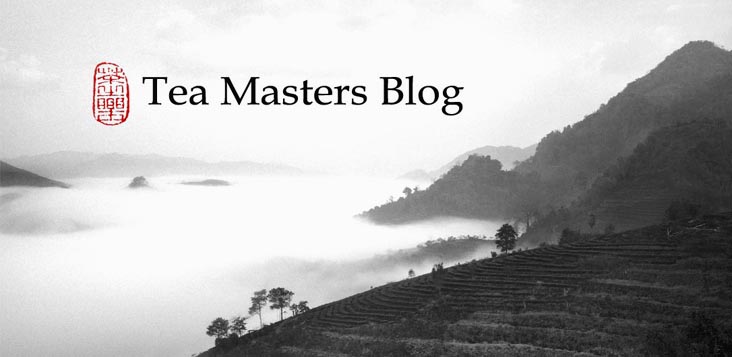 |
| Concubine Oolong, spring 2013 |
That's how we can even let tea and religion interact. For instance, last December, for the Advent time, I made 1 Chaxi on each day leading to Christmas.
Today's tea is dedicated to Lent. Since the liturgical color of Lent is purple, I chose this Chabu, Yixing teapot, the bowl...
The cool weather led me to choose a higher oxidized Oolong fitting this round JuLunZhu teapot: the 2013 spring Concubine Oolong. The symbolic choice of a 'concubine' Oolong doesn't mean that I'm cheating on my wife ('honey, I don't!'), but it is a reminder of my many failings and weaknesses. Practicing tea hasn't made me a saint...
Tea doesn't have to become a spiritual beverage to be enjoyed. And let me also add that you don't need tea to practice spirituality. However, I find that there are good reasons why tea and spirituality can be practiced together if you like tea. James A. Benn's book "Tea in China, a religious and cultural History" shows that already during the Tang dynasty, Buddhism played a role in spreading the consumption of tea.
In Tang poems, the literati sang the virtues and pleasures of tea. In this tea Pagoda poem, we can see how tea, religion and poetry came together! Making tea in a mindful way is about finding peace and harmony. At the root, this is a spiritual longing. The pleasures of tea on the palate can be a way to also bring peace to our soul. (See also my previous article about meditation and tea).
These Tang poems may seem like embellishments or poetic exaggerations to most modern readers. In my experience, though, there can really be times when everything flows with such grace and the tea tastes so divine that the whole experience feels like a glimpse of paradise!
In this spiritual time of Lent, powerful tea is also a great help for my abstinence from alcohol until Easter. This was also a reason why Buddhist monks promoted tea in China, as a replacement for wine.
Pure bliss.













3 comments:
Thanks for the interesting post, I very much share your opinion of tea-related Tang poetry.
May I ask what kind of plant we are seeing in these photos?
Thanks for your comment. This plant here is a kind of pine tree.
Stephane, this is a beautiful post. To make tea, invested with such Inner motivations, asks for clarity and thoughtfulness. Thank you for sharing such a personal viewpoint. It touches a chord in me.
Post a Comment